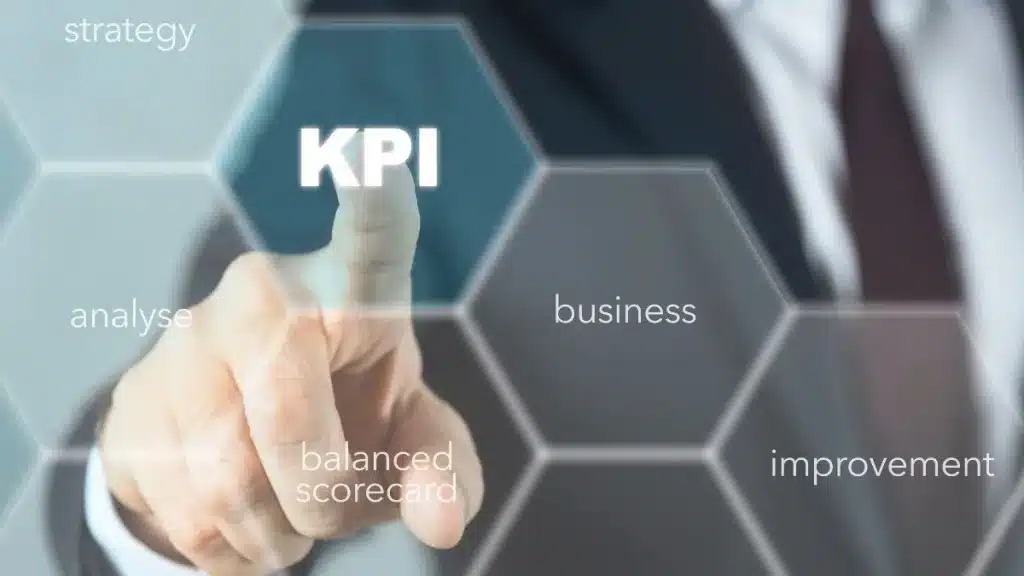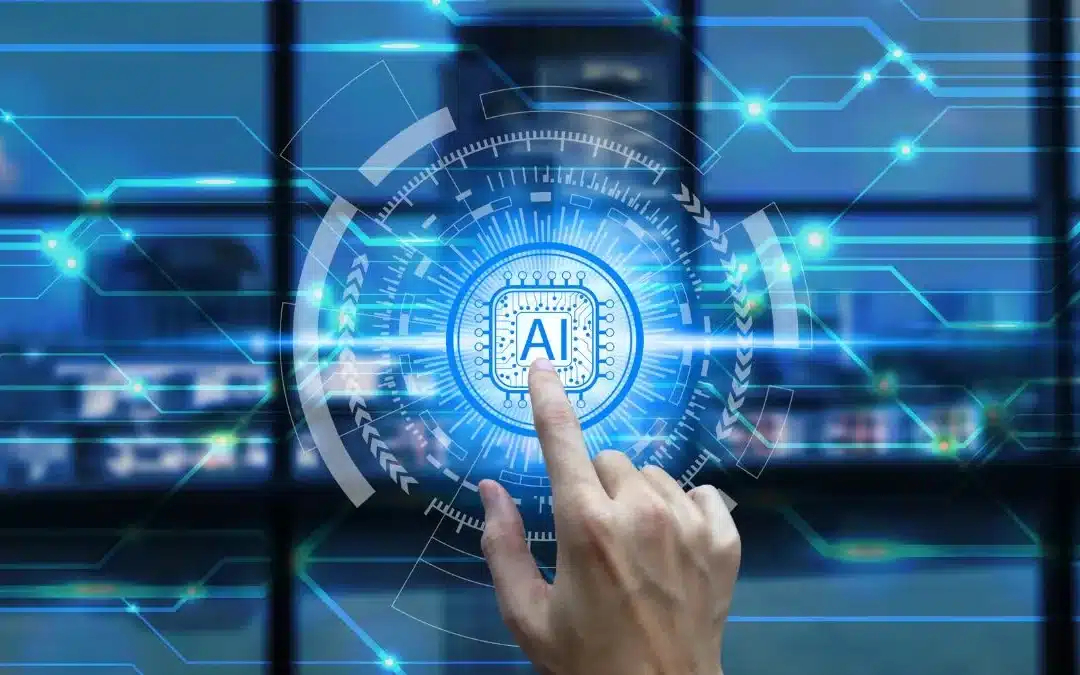In 2025, bringing AI inside your company has become a key element for competitiveness. However, only 8.2% of Italian companies with at least 10 employees use AI technologies, compared to the EU average of 13.5%. This highlights significant room for growth and the urgent need to bridge the digital divide.
The Istat report “Enterprises and ICT 2024” shows a progressive digitalization of Italian companies, albeit at different paces and with delays compared to the EU27 average. The adoption of Artificial Intelligence is growing, reaching 8.2% among companies with at least 10 employees (32.5% in large companies), with a boom in generative AI (+163.5%). SMEs show an increase in online turnover, which in 10 years has risen from 4.8% to 14.0%; overall, 20.4% of companies (10+ employees) sold online.
A digital divide persists between SMEs and large enterprises, especially regarding ICT specialists (11.3% SMEs vs 74.5% large companies) and ICT training (16.9% SMEs vs 67.0% large companies). General ICT training has decreased to 17.8% (from 19.3% in 2022). Broadband connectivity (>=30 Mbit/s) is at 88.8%, but 1 Giga connectivity is struggling (18.1% for 10+ employees).
On the security front, 32.2% of companies adopt a broad package of measures, but only 35.9% have formal documents on the matter, a decrease. Serious attacks have decreased for larger companies.
For the future (2025-26), an increase in digital investments is expected, especially in security (53.8%), ICT training (44.3%), and AI (+15 p.p. compared to the past). The main drivers for digitalization are public incentives (57.8%) and the development of internal ICT skills (38.1%).
Updated on May 22nd 2025
Estimated reading time: 10 minutes
Table of contents
AI inside YOUR COMPANY

From customer care to marketing, logistics to finance, AI adoption is enabling businesses to automate repetitive tasks, analyze data in real time, and deliver personalized customer experiences.
ai inside your company: a few examples
Bringing AI inside your company means to radically transform the way companies interact with their customers, in several business functions.
Let’s explore some of them.
Customer Care
Chatbots and Virtual Assistants are able to:
- Manage frequently asked questions (FAQ): provide immediate answers to common questions, lightening the workload of human operators;
- 24/7 support: ensure continuous assistance, even outside of office hours, improving customer satisfaction.
- Intelligent routing: direct the most complex or delicate requests to human operators with specific skills, optimizing resolution times;
- Personalization: some virtual assistants can access the customer’s history to provide more contextualized and personalized answers;
- Improved user experience (UX): reduced waiting times, immediate responses and constant availability contribute to a smoother and more positive customer experience
- Reduced operator workload: human agents can focus on more complex issues, which require empathy and advanced problem-solving skills, increasing their productivity and job satisfaction.
- Sentiment Analysis: AI can analyze text and voice from interactions to understand customer sentiment, helping companies identify areas for improvement or customers at risk of churn.
MARKETING
In marketing and sales, AI in the enterprise allows you to move from generic approaches to highly personalized and data-driven strategies. AI examines huge datasets from different sources (CRM, social media, purchase history, browsing behavior) to:
- Advanced segmentation: identify micro-segments of customers with specific characteristics and needs.
- Understanding purchasing behavior: predict consumer trends and preferences.
- Tailored content: generate or suggest personalized advertising messages, emails and offers for each segment or individual.
- Product recommendations: recommendation systems (like those of Amazon or Netflix) that suggest products or services based on past purchases or expressed interests.
- Targeting optimization: identify the best channels and times to reach potential customers.
- Conversion rate increase: presenting the right offer, to the right person, at the right time significantly increases the probability of conversion.
- Churn prediction: identify customers at risk of abandonment and implement proactive strategies to retain them.
- Personalized post-sale communications: maintain a relationship with the customer by offering relevant content or support.
- Price optimization (Dynamic Pricing): some AI applications can adjust prices in real time based on demand, supply and competitor behavior.
hr AI IN YOUR COMPANY
AI is streamlining many HR processes, allowing HR professionals to focus on more strategic aspects and human capital development.
- Resume screening: AI can analyze thousands of resumes in a short time, identifying the candidates who best match the job requirements.
- Candidate chatbots: answer frequently asked questions about the hiring process or the company.
- Interview scheduling: automate the logistics of interviews.
- Personalized onboarding paths: provide new hires with tailored materials and training.
- Automated support: internal chatbots to answer questions about company policies, benefits, etc.
- Performance data analysis: identify trends, strengths and areas for improvement at the individual or team level (with human oversight to avoid bias).
- Development suggestions: offer training courses or career paths based on skills and aspirations.
- Free up time for strategic activities: reduce time spent on administrative and repetitive tasks.
- Develop company culture.
- Workforce planning.
- Talent management and employee engagement strategies.
- Employee Sentiment Analysis: through surveys or anonymous analysis of internal communications, AI can help measure morale and identify issues.
Supply Chain & LOGISTICS
Supply chain efficiency, transparency and resilience are crucially enhanced by bringing AI inside your company.
Accurate inventory forecasting: machine learning algorithms analyze historical data, seasonality, promotions and external factors (e.g. weather) to predict demand and optimize inventory levels, reducing waste and warehouse costs.
Automatic replenishment: systems that automatically trigger orders to suppliers when inventory drops below a certain threshold.
Demand forecasting: critical to all supply chain planning, from procurement to production and distribution.
Real-time monitoring: using IoT sensors and AI to track the location and condition of goods during transportation.
Accurate ETA estimation: predict delays and proactively inform customers.
Route optimization: algorithms that calculate the most efficient delivery routes for vehicle fleets, reducing fuel costs and transportation times.
Predictive maintenance: AI analyzes sensor data on machinery and vehicles to predict impending failures, enabling proactive maintenance and reducing downtime.
Warehouse automation: AI-guided robots for picking, packing, and sorting goods.
Financial Services
The financial sector, rich in data and complex processes, is a major beneficiary of AI adoption.
- Transactional analytics: machine learning algorithms identify anomalous patterns in financial transactions (credit cards, wire transfers) to flag suspicious activity and stop fraud before it causes significant damage.
- Anti-money laundering (AML):monitor transactions to identify patterns that could be linked to money laundering.
- AI-enhanced robotic process automation (RPA): automate data entry, account reconciliation, invoice processing, and report generation.
- Document data extraction: use optical character recognition (OCR) and NLP to extract relevant information from invoices, contracts, and other financial documents.
- Algorithmic trading: AI systems that execute buy and sell transactions in financial markets based on complex predictive models.
- Credit scoring: algorithms that analyze a wide range of data to assess the creditworthiness of individuals and companies more accurately.
- Robo-advisors: platforms that offer personalized, low-cost investment advice.
- Regulatory compliance (RegTech): AI helps financial institutions monitor and comply with complex industry regulations by automating reporting and identifying potential non-compliance.
- Market sentiment analysis: process financial news, social media, and other text sources to gauge investor sentiment and predict market movements.
Practical Examples of AI In your company implementation

- SMEs: they exploit AI chatbots for 24/7 customer service, answering FAQs, qualifying contacts and improving the user experience. They use AI tools to analyze sales data, identify consumption trends, optimize inventory and personalize targeted marketing campaigns, increasing effectiveness and ROI.
- Large companies: they adopt AI systems for predictive maintenance on machinery, analyzing data from sensors to anticipate failures, reducing downtime and operating costs. AI optimizes production processes, supply chains, quality control (with computer vision) and energy efficiency, increasing productivity.
- Healthcare sector: AI is crucial for early diagnosis, analyzing medical images (X-rays, CT scans) to identify pathologies (e.g. tumors) in early stages. It personalizes treatment plans by processing genetic and clinical data for targeted and more effective therapies, and supports the research and development of new drugs.
Updated Statistics on Artificial Intelligence in Companies
The global Artificial Intelligence market is poised to reach an estimated $184 billion by the end of 2025. This projection, which is based on a significant 35% increase from 2024, reflects the massive and accelerated adoption of AI solutions in key sectors such as cloud computing, healthcare (diagnostics and research), finance (anti-fraud and algorithmic trading) and automotive (autonomous vehicles and driver assistance), underscoring the confidence and continued heavy investment of enterprises in the transformative capabilities of AI for innovation and operational efficiency.
The latest analysis indicates that AI’s impact on the labor market is materializing in the creation of approximately 97 million new job roles globally, a milestone expected by the end of 2025. These include a high demand for highly specialized roles such as data scientists, AI/ML engineers, AI ethics and governance specialists, but also emerging roles that require skills in interacting with, supervising, and managing AI systems in various sectors. This evolution, while significantly transforming existing jobs, is opening up new professional opportunities focused on the crucial human-machine collaboration.
A survey of business leaders in early 2025 reveals that a whopping 54% of executives confidently say that AI has already led to a tangible and measurable increase in productivity within their organizations. These significant improvements are attributed primarily to the intelligent automation of repetitive and time-consuming tasks, the optimization of decision-making processes thanks to data-driven predictive analytics, and the ability to provide faster, deeper and more accurate strategic insights, demonstrating that AI is now a proven efficiency driver and a competitive advantage for over half of the companies that have integrated it.
How to Get Started with AI inside your company
To launch AI in the enterprise in 2025, it is essential to follow a structured path that maximizes benefits and minimizes risks.
- Needs assessment
Identify business areas that can benefit from AI
- Staff training
Develop internal AI skills
- Selection of technologies
Choosing AI solutions that fit your needs
- Gradual implementation
Start with pilot projects to test the effectiveness of AI
- Monitoring and optimization
Evaluate results and make continuous improvements.
In conclusion
In 2025, artificial intelligence in companies will remain a strategic factor for competitiveness and innovation. Although only 8% of Italian companies have adopted AI solutions, the national market has grown by 58%, reaching 1.2 billion euros, driven by large companies and the use of GenAI tools such as ChatGPT and Copilot. The benefits are tangible: process automation, predictive analysis, offer personalization and supply chain optimization. However, a gap persists between large companies and SMEs, with only 7% of the latter having launched AI projects. To bridge this gap, it is essential to invest in training, digital infrastructure and gradual implementation strategies. Adopting AI is no longer an option, but a necessity to address market challenges and ensure sustainable growth.
FAQs about AI inside your company
It is the application of technologies that allow machines to learn and perform complex tasks, improving the efficiency and effectiveness of business processes.
Process automation, advanced data analysis, offer personalization, improved customer service and reduced operating costs.
Starting with simple solutions like customer service chatbots or data analytics tools, and then expanding the use of AI into other areas.
AI is designed to support and augment human capabilities, not replace them.
To measure the ROI of AI in the company, it is essential to define clear objectives and monitor key performance indicators (KPIs) related to productivity, efficiency and customer satisfaction.
Updated on May 22nd 2025

